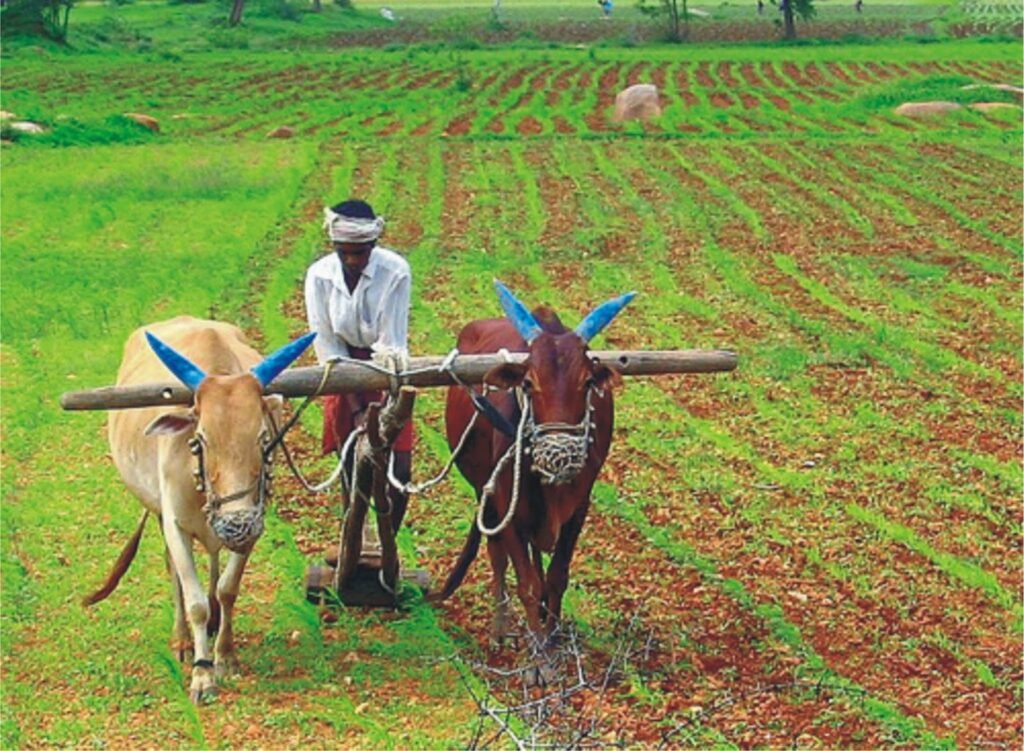In the second term of SSS 2 Agricultural Science, students will explore various critical topics related to crop production, forest management, floriculture, crop diseases, and pest management. These lessons will help students gain a deeper understanding of the biological, environmental, and economic aspects of agriculture. This article aims to provide detailed insights into each topic, explained in simple terms that will engage both beginners and more advanced learners.
Week One and Two: Pasture and Forage Crops
Key Concepts:
- Pasture Crops: These are plants grown primarily for grazing livestock. They provide animals with essential nutrients and contribute significantly to livestock production systems.
- Forage Crops: Forage crops are plants that are harvested for animal feed, such as grasses, legumes, and some shrubs.
Explanation: Pasture crops are vital for sustainable livestock farming, providing essential nutrients like proteins, carbohydrates, and fiber. Common pasture crops include bermuda grass, clover, and ryegrass. Forage crops, on the other hand, are cultivated specifically for feeding animals and often include lucerne (alfalfa), sorghum, and cowpea.
Example:
- Bermuda Grass is a hardy grass species that can withstand both drought and grazing pressure, making it a popular choice for pasture.
- Alfalfa (Lucerne) is a leguminous forage crop, rich in proteins, making it an excellent feed for cattle, goats, and sheep.
Reading Assignment:
- Research the nutritional benefits of common pasture and forage crops in livestock farming.
Evaluation Questions:
- What are pasture crops, and why are they important for livestock?
- How do forage crops contribute to animal nutrition?
- Provide two examples of pasture and forage crops used in your locality.
Week Three: Forest Management
Key Concepts:
- Forest Management: Involves the care and maintenance of forests to ensure sustainability, increase biodiversity, and optimize resources for timber and non-timber products.
Explanation: Forest management includes planning, conservation, and the sustainable use of forest resources. Effective management ensures that forests continue to thrive, provide raw materials, and support ecosystems. Forests are managed for timber, medicinal plants, firewood, and environmental conservation.
Example:
- Selective Cutting: This method involves cutting down mature trees while leaving younger trees to grow, which maintains forest structure and biodiversity.
Reading Assignment:
- Explore the various types of forest management practices, such as clear-cutting and selective cutting, and their environmental impacts.
Evaluation Questions:
- Define forest management.
- How does forest management contribute to sustainability?
- Name two practices used in forest management.
Week Four and Five: Floriculture
Key Concepts:
- Floriculture: The cultivation of flowers and ornamental plants for sale and decoration, including both indoor and outdoor plants.
Explanation: Floriculture involves growing flowers and ornamental plants for ornamental, medicinal, and sometimes culinary purposes. It plays an essential role in the agricultural sector, contributing significantly to the economy by producing flowers for both domestic and international markets. Floriculture includes the cultivation of flowers like roses, orchids, and tulips, as well as foliage plants like ferns.
Example:
- Roses: Cultivated for their aesthetic value and used in events like weddings, floriculture also provides significant income from cut flowers.
Reading Assignment:
- Investigate how floriculture contributes to the local economy and its environmental significance.
Evaluation Questions:
- What is floriculture, and why is it important?
- List two examples of flowers grown in floriculture.
- Describe how floriculture impacts the economy.
Week Six and Seven: Diseases of Crops
Key Concepts:
- Crop Diseases: Refers to conditions affecting plants caused by pathogens like bacteria, fungi, viruses, and nematodes.
Explanation: Crop diseases can severely impact agricultural productivity. These diseases can spread rapidly, leading to reduced yields or total crop failure. Common diseases include blight, rust, mildew, and smut, which can affect crops like tomatoes, wheat, and maize.
Example:
- Late Blight: A fungal disease that affects potatoes and tomatoes, leading to severe yield loss.
Reading Assignment:
- Learn about the common pathogens that cause crop diseases and how they are controlled using cultural, biological, and chemical methods.
Evaluation Questions:
- What are crop diseases, and what causes them?
- Provide two examples of common crop diseases.
- Describe methods used to control crop diseases.
Week Eight and Nine: Pests of Crops
Key Concepts:
- Crop Pests: Refers to insects, rodents, and other animals that harm crops by feeding on them or spreading diseases.
Explanation: Pests can reduce crop yields by directly feeding on plants or transmitting diseases. Common crop pests include aphids, caterpillars, and weevils. Pest management involves using techniques such as chemical pesticides, biological control, and integrated pest management (IPM) to minimize damage.
Example:
- Aphids: Small insects that feed on plant sap and can transmit viral diseases, affecting crops like tomatoes and cabbage.
Reading Assignment:
- Investigate different pest management strategies and their effectiveness in controlling crop pests.
Evaluation Questions:
- What are crop pests, and how do they affect crops?
- Provide two examples of pests that commonly affect crops.
- How can farmers manage crop pests effectively?
Week Ten: Agricultural Science Revision and Examination Preparation
Key Concepts:
- Revision and Examination Preparation: A time to review all the topics covered in the second term and practice problem-solving techniques to prepare for exams.
Explanation: During this week, students should review all lessons from the second term, focusing on key concepts, examples, and strategies for effective studying. Preparing for exams involves going over past exams, revisiting important topics, and solving practice problems.
Reading Assignment:
- Revise all the topics studied in the second term and solve sample questions from past exams.
Evaluation Questions:
- What are the most important concepts to revise for the upcoming exam?
- How can you effectively prepare for an Agricultural Science exam?
- Solve a sample question on pest management or floriculture.

